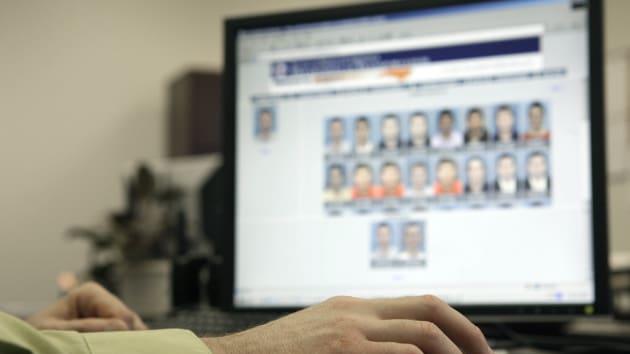intelligence
Latest

Obama opens investigation into cyber attacks on US election
President Barack Obama has ordered an investigation into cyber attacks and foreign influence during the 2016 US presidential election, Reuters reports. He's asking intelligence agencies to provide a report on the issue before he leaves office on January 20th, and the review will be shared with lawmakers and other stakeholders, homeland security adviser Lisa Monaco reportedly said. Monaco added that cyber attacks may have crossed a "new threshold" this year.

Lawmakers demand answers from White House over Yahoo emails
Four dozen members of the US House of Representatives, acting as a bipartisan bloc, have requested that the Obama Administration brief them on allegations that Yahoo improperly scanned user emails at the behest of the Foreign Intelligence Surveillance Court.

We don't understand AI because we don't understand intelligence
Artificial intelligence prophets including Elon Musk, Stephen Hawking and Raymond Kurzweil predict that by the year 2030 machines will develop consciousness through the application of human intelligence. This will lead to a variety of benign, neutral and terrifying outcomes. For example, Musk, Hawking and dozens of other researchers signed a petition in January 2015 that claimed AI-driven machines could lead to "the eradication of disease and poverty" in the near future. This is, clearly, a benign outcome. And then there's the neutral result: Kurzweil, who popularized the idea of the technological singularity, believes that by the 2030s people will be able to upload their minds, melding man with machine. On the terrifying side of things, Musk envisions a future where humans will essentially be house cats to our software-based overlords, while Kurzweil takes it a step further, suggesting that humans will essentially be eradicated in favor of intelligent machines.

US, UK intelligence agencies cracked Israeli drone data
The National Security Agency and the UK's Government Communication Headquarters have been hacking into Israeli drones to observe military operations and areas of interest in the Middle East, according to The Intercept. "Anarchist," as the program was called, saw technicians at a GCHQ facility in Cyprus routinely intercept video feeds over the course of several years, with some of the most telling bits winding up among the documents leaked by Edward Snowden.

Latest batch of Clinton emails may contain classified intel
The State Department announced on Monday that it will release an email from former-Secretary of State Hillary Clinton's private email server that, according to members of the intelligence community, may contain classified information. The email is part of a nearly 8,000-page document dump scheduled for Monday. The State Department has already unveiled around 30,000 pages (of an estimated 54,000) since the scandal erupted in March.

Neuroscientists accurately predict intelligence with an fMRI scan
If fingerprints can identify individual people, imagine what a brain-print could reveal -- namely, how you think and how intelligent you are. Neuroscientists studied fMRI scans of 126 patients in the Human Connectome Project, a consortium helping to map the human brain, and found consistent connections that accurately predicted "fluid intelligence," or abstract reasoning. Their findings were published today in the journal Nature. Researchers found that the more certain regions of the brain spoke to each other, the more likely a person was to quickly process information and make inferences, Yale grad student and study co-author Emily Finn told Wired. For example, a strong connection between the frontal and parietal lobes, two areas involved in high-level functions, accurately predicted a high fluid-intelligence score.

Find out if the UK used NSA data to spy on you
While it's sadly likely that your communications have passed through an intelligence agency at some point, it's usually difficult to know just who got your data. However, you now have a rare opportunity to find out. Thanks to a ruling that the UK's GCHQ illegally spied on people using NSA databases, advocacy group Privacy International has posted a simple web form that lets you ask if you were caught in Britain's law-breaking dragnet -- and, as you might expect, petition against mass surveillance. This won't provide the most comprehensive results (you should use the official form if you're really worried), but it should still lead to GCHQ purging the relevant records if there's a match. The only big problem? The request is limited to the past data covered by the ruling, so there's no guarantee that you're truly off the radar. [Image credit: Christopher Furlong - WPA Pool/Getty Images]

UK government reveals its hacking guidelines
It's no secret that numerous countries see hacking as a viable security strategy, but the British government has been reluctant to admit as much. Ask it about GCHQ's ability to mess with communications, for example, and it will only say that whatever it does is legal and necessary (even if it isn't). The nation's leaders just got a little more honest, however: the UK Home Office has published the guidelines that law enforcement and spies follow when using "equipment interference" (read: hacking) to get into phones and PCs. The rule set largely deals with high-level issues such as proportional uses of hacks, data retention and the validity of warrants, but it's a rare acknowledgment that these digital intrusions even take place. It goes so far as to mention that the UK intercepts and bugs gadgets it wants to spy on, much like its American counterparts. Minister James Brokenshire claims that the government is being "as open as it can be" about its security policies by publishing the documents, and this is certainly a milestone given earlier secretiveness.

Judges rule that UK spying doesn't violate human rights
British spies may be peeking into webcams and modifying internet traffic, but all that is above board -- if you ask the UK's Investigatory Powers Tribunal, anyway. Its judges have ruled that the Government Communications Headquarters' (GCHQ) intelligence gathering practices aren't violating the European Court of Human Rights' safeguards for free speech and privacy. The Tribunal agrees that unchecked mass data collection would be illegal, but contends that the ways GCHQ selects and preserves that data are reasonable. It doesn't have "carte blanche" to do what it likes, according to the ruling.

NSA Privacy Director says fears of government spying are unwarranted
It was one of the final questions of the NSA's open Q&A today, and one that's weighed heavily on the minds of American citizens since the Prism scandal last year: "Are our fears of being discreetly spied on merited?" They aren't, according to NSA Civil Liberties and Privacy Director Rebecca Richards . "NSA is a foreign intelligence agency," she explained. "Our mission is to collect critical intelligence on foreign powers or their agents necessary to defend the country." The response is almost dismissive, but technically correct: the NSA isn't supposed to keep tabs on domestic threats, that's the FBI's job. That said, Richards did admit that some intelligence collection against US citizens is unavoidable. "For example, a foreign intelligence target may communicate with or about a U.S. Person," she explained. "NSA's minimization procedures have been designed to account for this possibility and other cases where NSA may incidentally acquire U.S. Person information."

Australian bill would jail those who report on leaked spying operations
Journalists in the US and UK may be relatively safe from the government's wrath when they report on surveillance leaks from the likes of Edward Snowden, but the Australian press may have to tread carefully before too long. Attorney General George Brandis has presented a bill that would make it a crime to reveal information that might "prejudice the effective conduct" of "special intelligence operations," such as those from the Australian Security Intelligence Organisation (ASIO). It also creates new charges specific to people who might become whistleblowers, such as contractors and the spies themselves.

US claims Chinese exec used hackers to steal warplane data
The US isn't done throwing the book at alleged Chinese industrial spies. The Department of Justice has charged a Chinese executive living in Canada, Su Bin, with stealing sensitive info for Boeing and Lockheed Martin warplanes like the C-17 cargo hauler and F-22 fighter. Reportedly, Su partnered with two people to hack into the aircraft makers' networks and either pass along or sell any secrets to interested parties in China. Unlike other targets of the DOJ's wrath, though, it appears that Su was more concerned about profit than helping any government intelligence efforts. While he was handing over data to state-owned aviation firms, he complained of "stingy" buyers and was willing to take a long time to hash out a deal -- not exactly the hallmarks of a government-backed spy.

Most of the NSA's intercepted messages involve ordinary people
It's no secret that the NSA's surveillance efforts reach far and wide. However, we now know which sort of people get caught in that dragnet -- and most of them, it turns out, are very ordinary. About 90 percent of users in a cache of Intercepted messages (leaked by Edward Snowden to the Washington Post) were innocents who either talked to suspects or simply happened to be in the wrong chat room at the wrong time. Some of the information is very personal, too, ranging from kids' school records to couples' love affairs.

The NSA has collected 'millions' of faces from the web
The NSA isn't just interested in pure communications intelligence like call records; it wants to look for faces, too. Documents leaked by Edward Snowden reveal that the NSA has been using facial recognition software to scan the internet for portraits and match them with investigative data. The agency can determine whether or not a suspect spotted in a photo or video chat has a valid passport, for example, or find out if informants have said anything about that person. It can even spot subtle changes (like beards) and link photos to satellite info to pinpoint someone's whereabouts. As of 2011, the NSA was getting about 55,000 "facial recognition quality" images per day out of "millions" of candidates, according to the leaked material.

Edward Snowden used automated web search tools to collect NSA data
It's tempting to imagine that Edward Snowden obtained NSA data through a daring Mission Impossible-style raid, but it now appears that he didn't have to put in much effort. Intelligence officials speaking to the New York Times say that Snowden used a standard web crawler, a tool that typically indexes websites for search engines, to automatically collect the info he wanted. He only needed the right logins to bypass what internal defenses were in place. Since the NSA wasn't walling off content to prevent theft by insiders, the crawler could collect seemingly anything -- and Snowden's Hawaii bureau didn't have activity monitors that would have caught his bot in the act. Whether or not you believe the NSA's intelligence gathering policies justified a leak, it's clear that the agency was partly to blame for its own misfortune.

WSJ: NSA collects data from less than one-fifth of all cellphone records
The National Security Agency might be busy collecting your Angry Birds high scores, but our previous notions that the government is collecting all of our phone data may be over-exaggerated, according to the Wall Street Journal. The publication reported this morning that in reality, the agency actually collects less than 20 percent of all call data. So what's going on? There appear to be a few factors that have formed a bit of a roadblock for the NSA's collection efforts: The rapid growth of phone use has made it hard for it to keep pace, and it's also struggled to find ways to remove location data (which is illegal to collect) from phone records; this information contradicts December reports that the NSA collects 5 billion phone location records per day.Lastly, the NSA's orders to US operators don't cover a vast majority of the cellphone records available, and its collection efforts have also been slowed down due to demands on the agency to respond to criticisms from US courts. If these sources are to be believed, apparently the NSA's collection program isn't as widespread as we originally thought. Of course, this might be one reason why it's resorting to World of Warcraft to get information.

CIA reportedly pays to collect foreign call data from AT&T
The NSA wields its legal authority to collect phone call data from American telecom providers, but the CIA apparently doesn't even need to apply pressure. The New York Times claims that the agency has a years-old voluntary agreement with AT&T that lets it obtain the call records of foreign suspects; the CIA pays $10 million per year in compensation. While the carrier reportedly hides identifying data for American participants, intelligence officers can demand that information as well if they get FBI subpoenas. Both AT&T and the CIA tell the Times that they're obeying the law, but that may not be very reassuring to those who want to keep their international calls private. [Image credit: David Drexler, Flickr]

NSA shared raw intelligence with Israel with no legal limits regarding its use
It's no secret that the United States and Israel have a very special relationship, but it might come as an unpleasant surprise that the NSA's intelligence-sharing agreement has so few strings attached. Today's edition of What-Has-the-NSA-Done-This-Time is brought to you by The Guardian, which revealed that the US government has handed over information intercepted through the agency's shady surveillance programs with no legally binding limits on how the data could be utilized. While we can't be sure of the exact nature of the raw intelligence shared with Israel, it's likely that the information contained phone calls and emails of American citizens. Considering that only yesterday, we learned that the NSA had violated its own privacy protections between 2006 and 2009, blaming confusion about how the system actually worked, today's development raises a few important questions about what information is being shared across borders and how exactly it's being used. For more information, check out The Guardian's report, linked below.

NSA violated privacy protections from 2006 to 2009, pins blame on confusion
By now, it's no secret that the NSA has courted privacy violations, but new documents divulge just how long such incidents have occurred. Director of National Intelligence James Clapper released approximately 1,800 pages of declassified files, which reveal that the NSA's phone record program violations happened between 2006 (when it first came under court supervision) and 2009, when the Foreign Intelligence Surveillance Court ordered changes to the operation. During that period, a total of 17,835 phone numbers were listed for checking against Uncle Sam's database, and only about 1,800 were based on the standard of reasonable suspicion. According to Clapper, congress received the papers we're seeing now at the time of the incidents, and corrective measures have been put in place. Among the preventative actions are a complete "end-to-end" review of telephony metadata handling, the creation of the Director of Compliance position and a fourfold increase of the compliance department's personnel. As it turns out, the missteps are (again) said to have been accidents. "There was nobody at the NSA who had a full understanding of how the program worked," an intelligence official claims. Sure, the increased transparency is certainly welcome, but a recently-leaked NSA audit from May of 2012 suggests that collection of protected data is still occurring from a combination of human error and technical limits. To pore through the National Security Agency's fresh load of documents, hit the second source link below.

European Parliament votes to investigate US surveillance of EU residents
Not surprisingly, the European Parliament isn't happy to hear that the NSA and other US agencies are allegedly snooping on communications in Europe and elsewhere. It isn't just complaining loudly, however -- the Parliament just voted 483-98 in favor of a resolution that will investigate US surveillance activities in Europe and report on their impact before the end of the year. The measure also asks EU officials to consider limiting the data they voluntarily provide to American authorities, such as shutting down programs that forward air passenger and bank records. There's nothing in the resolution that would immediately affect the EU-to-US communication pipeline, but that could change in half a year -- US intelligence outlets may not get their European information served on a silver platter for much longer. [Image credit: JLogan, Wikipedia]






